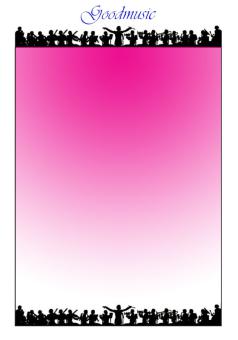Edward Elgar
Salut d'amour
Edward Elgar
Salut d'amour
- Compositor Edward Elgar
- Editorial Goodmusic Publishing
- Nº de pedido GMCL151-00
IVA incluido.,
Más gastos de envío
No disponible en todos los países. Leer más
Descripción de la:
Orchestration:
Flute, 2 Oboes, 2 Clarinets in A or Bb, 2 Bassoons, 2 Horns in F
Strings (Violin 1, Violin 2, Viola, Cello, Double Bass)
In the summer of 1888, Edward Elgar went for a holiday with a long-standing friend, Dr Charles Buck of Settle, Yorkshire. As he left, his fiancee, Alice, gave him a poem she had written entitled Love's Grace. Whilst in Yorkshire, Edward wrote a short piece for her which he called Liebesgruss (Love's Greeting). On his return from holiday, Elgar presented the work to his wife and proposed to her. They married at the Brompton Oratory in London in May 1889.
Elgar submitted three versions of the work (solo piano, violin and piano, and an orchestral arrangement) to the music publishers Schott who bought the work outright for two guineas. The work sold slowly at first but when Schott retitled the work (with Elgar's approval) as 'Salut d'Amour', the French title helped to improve international sales and it gradually achieved the popularity thatit still enjoys today.
This edition is as Elgar composed it, save for some minor editorial tidying-up.
Duration: 3 minutes
A PACK comprises one full score, string parts 4/4/3/4/2 and any wind, brass and percussion parts.
Flute, 2 Oboes, 2 Clarinets in A or Bb, 2 Bassoons, 2 Horns in F
Strings (Violin 1, Violin 2, Viola, Cello, Double Bass)
In the summer of 1888, Edward Elgar went for a holiday with a long-standing friend, Dr Charles Buck of Settle, Yorkshire. As he left, his fiancee, Alice, gave him a poem she had written entitled Love's Grace. Whilst in Yorkshire, Edward wrote a short piece for her which he called Liebesgruss (Love's Greeting). On his return from holiday, Elgar presented the work to his wife and proposed to her. They married at the Brompton Oratory in London in May 1889.
Elgar submitted three versions of the work (solo piano, violin and piano, and an orchestral arrangement) to the music publishers Schott who bought the work outright for two guineas. The work sold slowly at first but when Schott retitled the work (with Elgar's approval) as 'Salut d'Amour', the French title helped to improve international sales and it gradually achieved the popularity thatit still enjoys today.
This edition is as Elgar composed it, save for some minor editorial tidying-up.
Duration: 3 minutes
A PACK comprises one full score, string parts 4/4/3/4/2 and any wind, brass and percussion parts.

